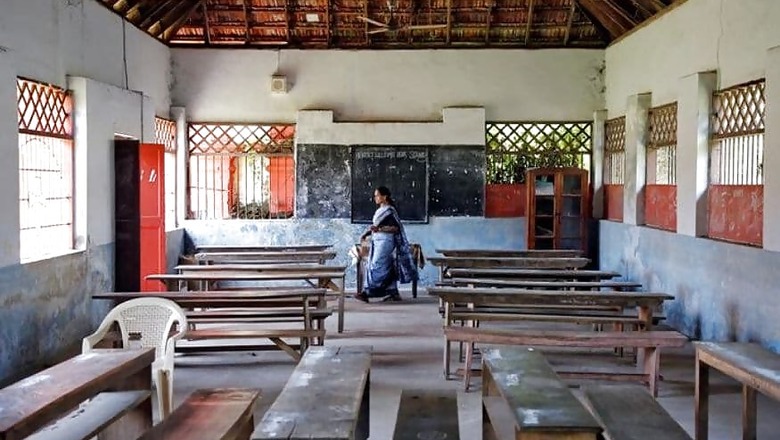
views
Editors' Note: The Industry Dialogue is a multi-part series by News18.com in which the industry talks about the impact of the Coronavirus pandemic and the challenges because of the COVID-lockdown, as well as the possible solutions and measures to get the economy back on track at the earliest.
Online Classes were the quintessential no-go zone for almost all higher education institutions in India until Covid-19 struck. This medium was largely restricted to distance learning programs or new age Education Technology start-ups who have been trying to disrupt the for-profit education and training landscape. With the pandemic, Higher Educational institutions were left with no option but to transition online almost overnight. With the nature of the current lockdown, remote learning has become the (temporary?) norm across the entire value chain of learning including K-12 schools. My daughter who is currently in Kindergarten now has online classes everyday albeit for an hour with a 30 min break in the middle. Who could have foreseen this scenario?
Resistance to change melted away instantaneously and both students and faculty found themselves glued to their laptops or tablets engaging with each other. Whilst technological tools are aplenty and connectivity is a lesser problem now, online learning is proving to be a great leveller. This is driving faculty and those facilitating them to rediscover the learning process – to go back to the science and art of knowledge facilitation. Surprisingly, some faculties who were excellent communicators in traditional face to face classrooms have struggled somewhat on this new ‘stage’. Other faculty who may have found it difficult to hold the attention in a traditional classroom have come into their own here. Research suggests that attention spans shrink further online even with the best of students. Sometimes the best you can get is 6 minutes of attention in an online lecture.
The online learning medium lends itself better to a constructivist approach where learners build meaning from their own experiences. Personal interpretations and self-exploration of complex topics enhance the learning experience of the students. Problem based learning is an important example of constructivist learning where students go through a collaborative discussion process to enhance their own understanding. This learning approach is easier said than done in India where a major section of the education system is still focused on rote based learning. The flipped classroom approach has had a mixed response precisely for that reason.
The stock price of Zoom Communications had gone through the roof before being dented by privacy concerns. According to some research, the company’s active user count was up by 340 percent compared to December 2019. Other online communication technology players are also pushing usage and importance across the work and home spheres as well. The scale of this move online was global and unprecedented. Covid-19 is not just a localised flood or earthquake, it is incomparable in its scale and not previously witnessed by any of the generations that co-habit this planet currently. The coronavirus has been ruthless in its destruction and if analysts are to be believed, this virus will leave deep scars on the political economy, business and the human psyche.
Institutions all over the world including India were left with no option but to make their move online.
For those new to online teaching, it will be important to start small with limited experimentation but a greater focus on generating interaction and engagement. There is a tendency at times to bombard participants and learners with a lot of lecture content but this is counter-productive. After building a proxy lecture environment and increased comfort, faculty could incorporate forums, quizzes and other asynchronous content. Online instructional designers could work with faculty to help design a structured approach to lessons. A robust peer-to-peer collaborative review process also helps create an online learning culture. Pre and post lecture engagements are as important as the lecture itself. Research does suggest that slow learners would require a much greater emphasis in the online classroom and be prepared to spend more time with them.
Over time, faculty could start incorporating more digital learning tools such as Mentimeter, Kahoot, Edmodo, Padlet, Socrative and Visme. As in the physical world, let your personality reflect in the online medium too. The initial days of online cacophony, muting, unmuting, background noise of all denominations would steadily lead to a tango of engagement and mutual respect for learning.
About the Author:
Dr. Vishal Talwar is the Dean of the School of Management at the BML Munjal University.


















Comments
0 comment